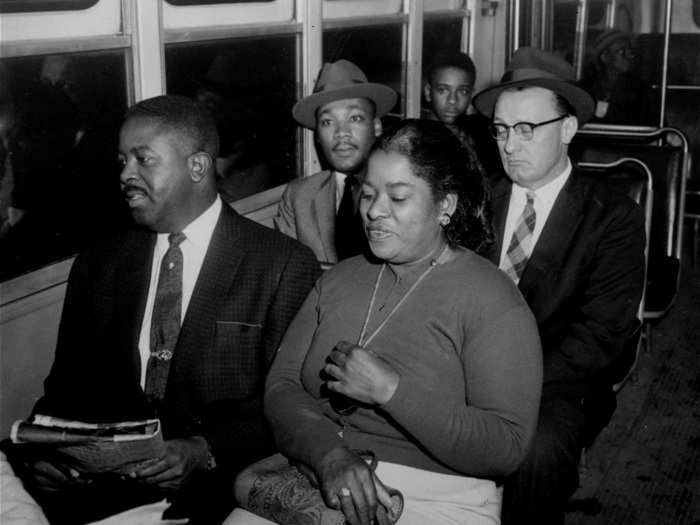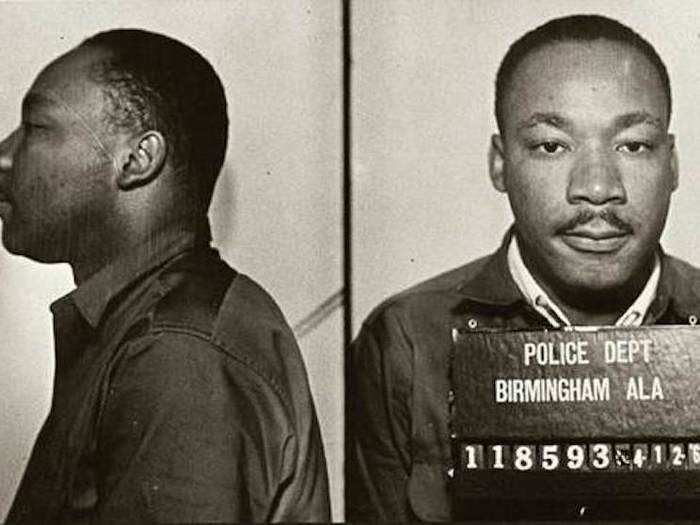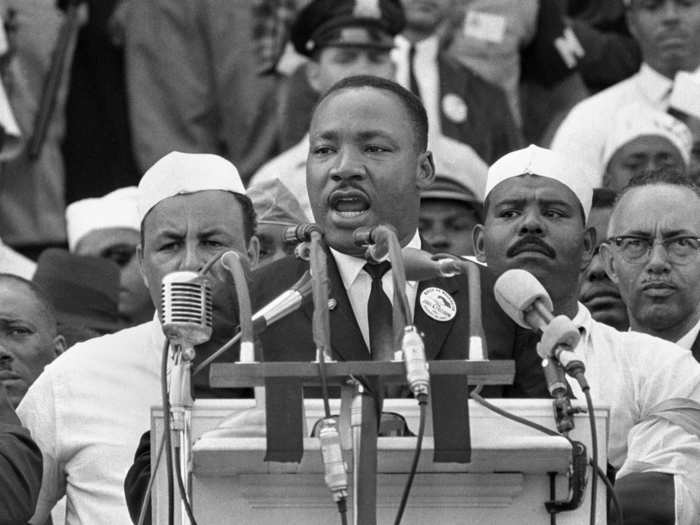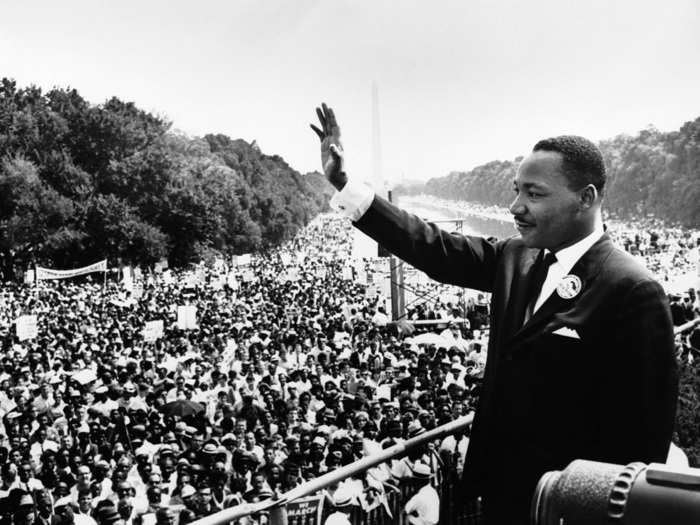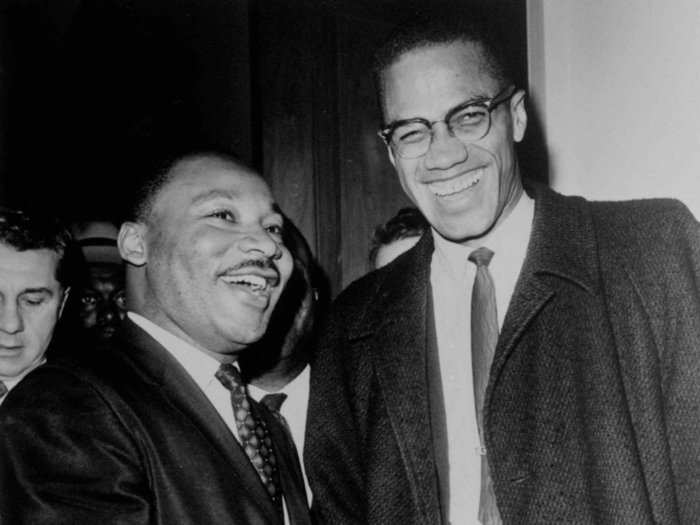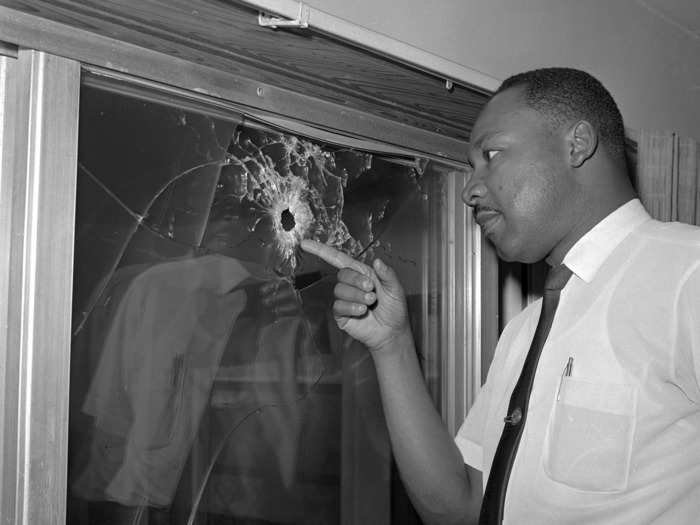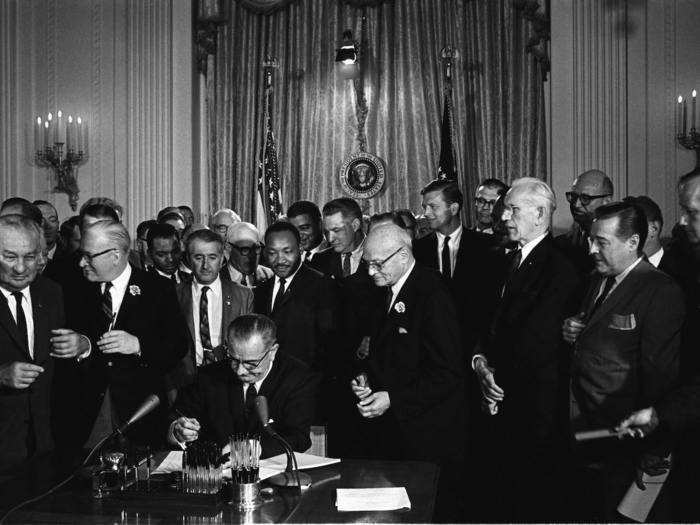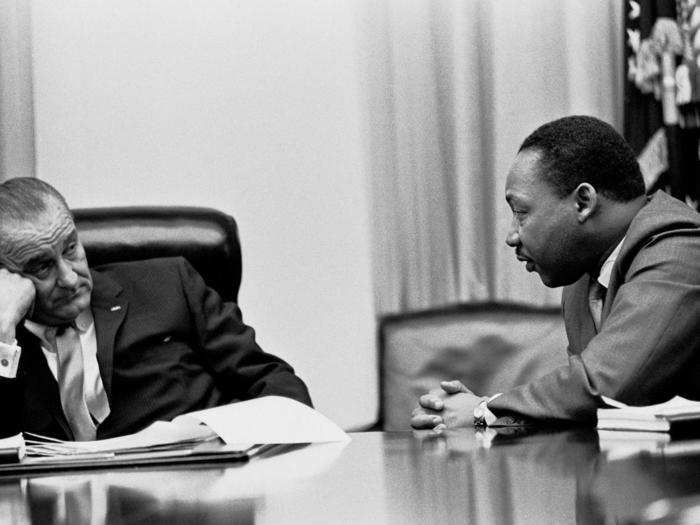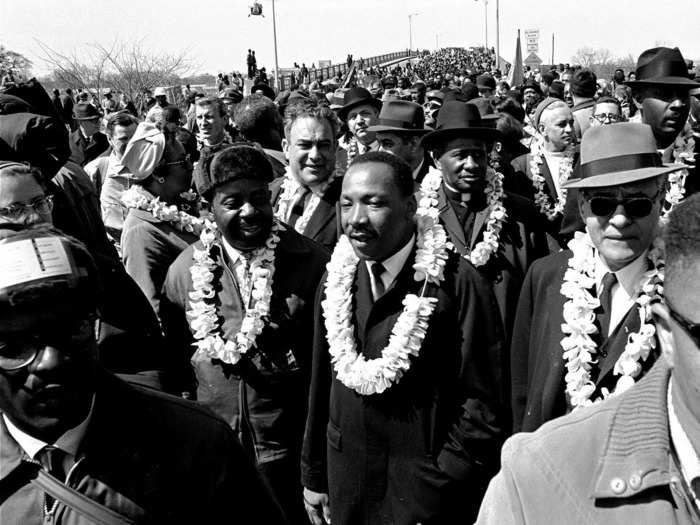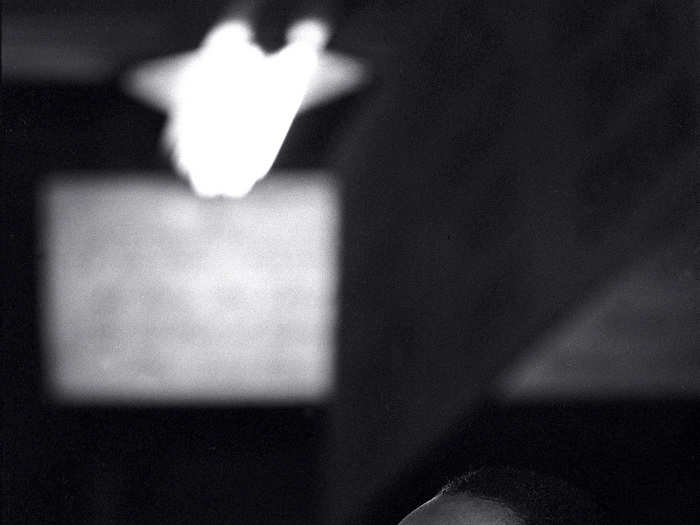King's mugshot after he was arrested in Birmingham on April 12, 1963 — Good Friday — for violating an anti-protest injunction.
In April 1963, King and the Southern Christian Leadership Council organized the Birmingham Campaign to protest segregation, which involved a series of sit-ins and marches.
After King was arrested, and while in solitary confinement, he penned his famed "Letter From a Birmingham Jail," which responded to a number of local religious leaders who criticized the Birmingham campaign.
King delivers his famous "I Have a Dream" speech at the Lincoln Memorial in Washington DC on August 28, 1963.
"I have a dream that my four little children will one day live in a nation where they will not be judged by the color of their skin but by the content of their character," King said in perhaps his most famous line of the speech. "I have a dream today."
King shakes hands with Malcolm X in Washington DC in March 1964.
The picture was taken shortly after Malcolm X split with the Nation of Islam.
Malcolm X would later travel to Mecca, where he learned that orthodox Muslims preach equality of the races, leading him to abandon the belief that all white people are devils.
King points to a bullet hole in his rented St. Augustine, Florida home on June 5, 1964.
King was in St. Augustine to help end segregation in one of the US' oldest cities, hoping that it would also garner more support for the pending Civil Rights Act, which was passed less than a month later.
King marches and civil rights marchers cross the Edmund Pettus Bridge in Selma, Alabama, on March 21, 1965, during their 50-mile march to Montgomery to protest voting laws.
King organized three marches from Selma to Montgomery in March 1965, the first of which later became known as "Bloody Sunday" after state troopers brutally assaulted the activists, galvanizing Congress to pass the Voting Rights Act of 1965.
King delivers his last speech on April 3, 1968, at the Mason Temple in Memphis, Tennessee.
"I just want to do God's will," King said at the end of his speech. "And he's allowed me to go up to the mountain. And I've looked over. And I've seen the promised land. I may not get there with you. But I want you to know tonight that we as a people will get to the promised land. So I'm happy tonight, I'm not worried about anything — I'm not fearing any man. My eyes have seen the coming of the Lord."
King was assassinated the next day, April 4th, on a balcony at the Lorraine Motel.

